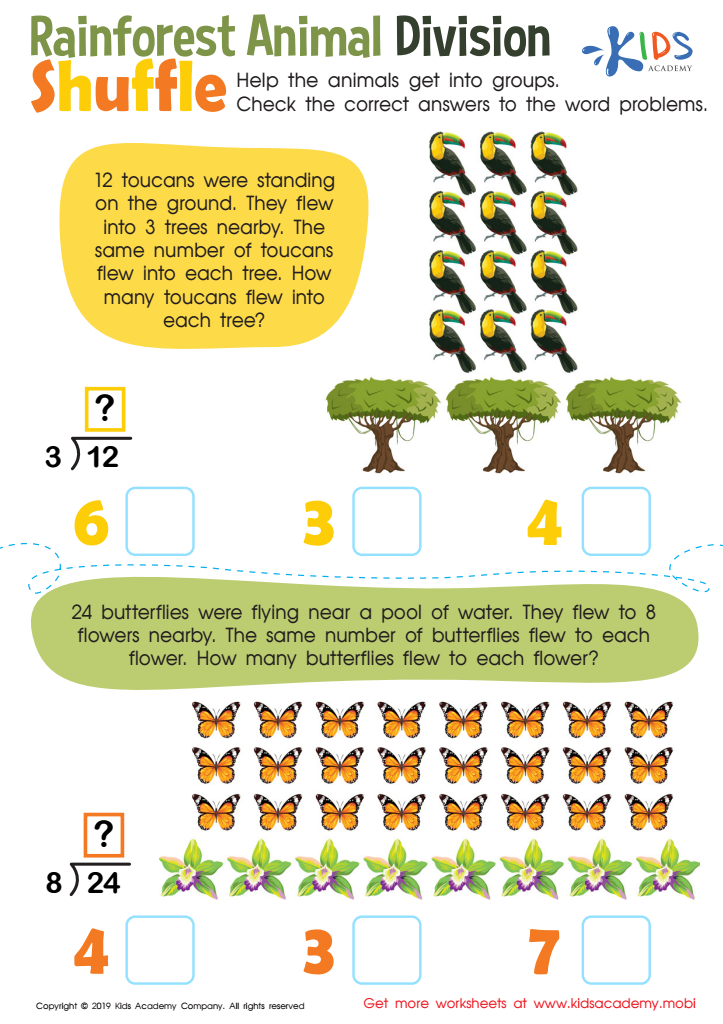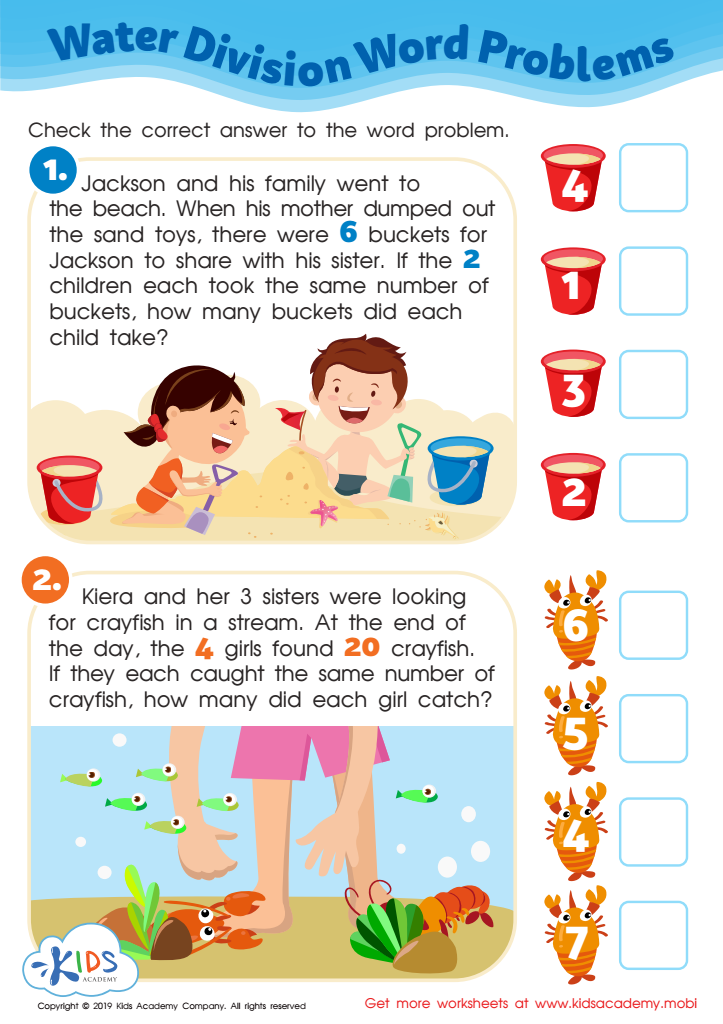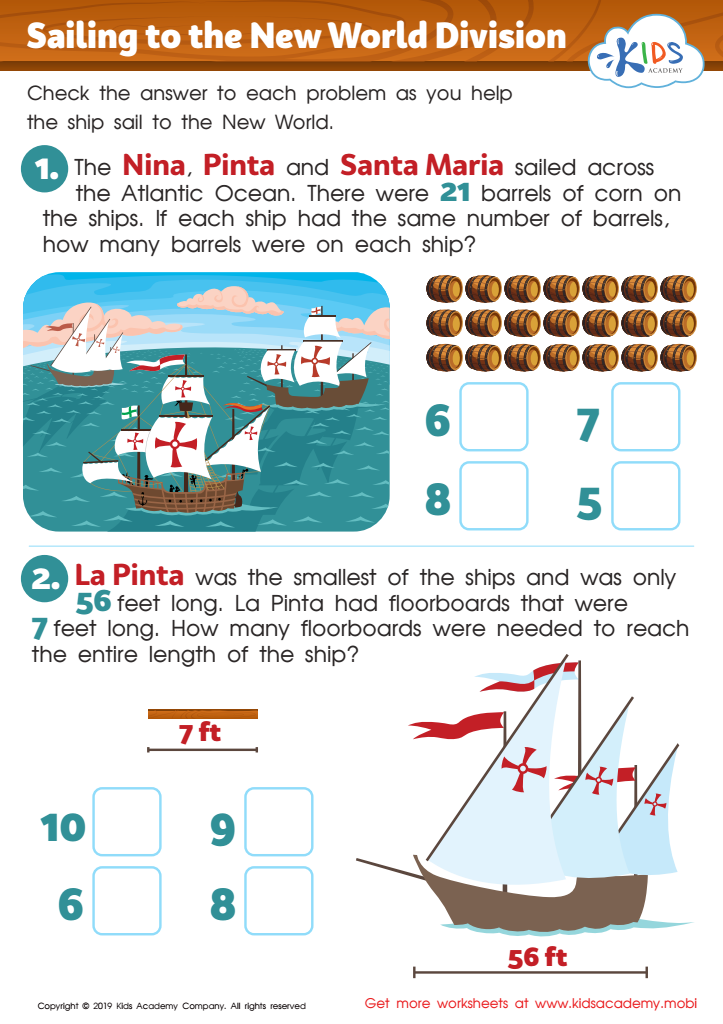Division practice Normal Word Problems Worksheets for Ages 3-7
4 filtered results
-
From - To
Boost your child's math confidence with our Division Practice Normal Word Problems Worksheets, designed specifically for ages 3-7! These engaging worksheets introduce young learners to division concepts through relatable, everyday scenarios, fostering critical thinking and problem-solving skills. Each activity is crafted to be age-appropriate and encourages children to navigate word problems, enhancing their comprehension and arithmetic abilities. Whether at home or in the classroom, these fun worksheets make learning division enjoyable and accessible. Perfect for early math education, these resources provide parents and teachers with the tools needed to support young mathematicians. Explore our division worksheets today and watch your child's skills grow!


Rainforest Animal Division Worksheet


Enrichment -2 Step Word Problems Worksheet


Water Division Word Problems Worksheet


Sailing to the New World Division Worksheet
Parents and teachers should prioritize Division practice through normal word problems for children aged 3-7 because it lays a strong mathematical foundation that promotes critical thinking and problem-solving skills. At this early developmental stage, children are naturally curious and receptive to understanding relationships between numbers. Word problems help contextualize division, transforming abstract concepts into relatable scenarios that enhance comprehension.
Engaging with division through real-life situations—such as sharing snacks among friends or distributing toys—encourages children to employ logical reasoning and develop analytical skills. This practical approach fosters a positive attitude toward math, making it less intimidating and more enjoyable.
Moreover, practicing division at this grade level builds essential skills for future learning. Children learn about equality and fairness, develop their ability to visualize and manipulate quantities, and enhance their verbal communication skills as they articulate their reasoning.
Incorporating division word problems into daily activities completes the learning experience, emphasizing the relevance of mathematics in everyday life. It nurtures a sense of accomplishment as children learn to solve problems independently, paving the way for future academic success and a lifelong appreciation for mathematics.
 Assign to My Students
Assign to My Students















